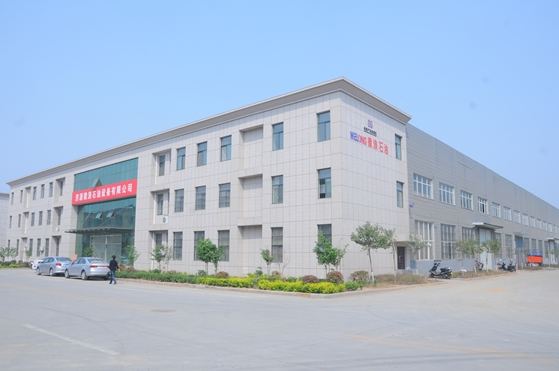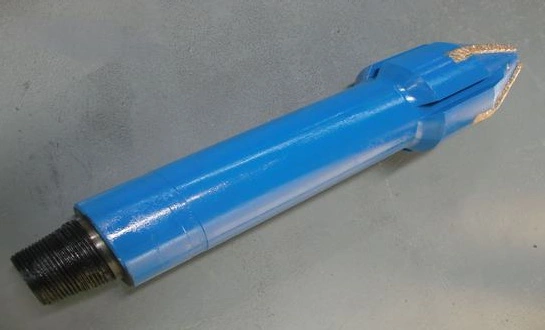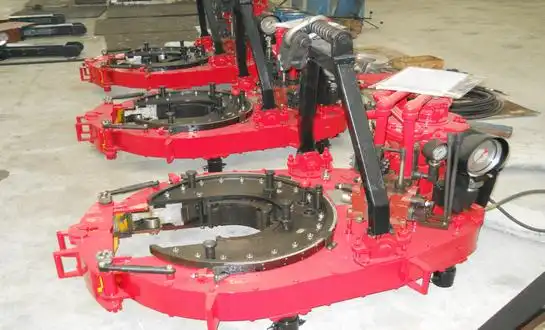Understanding Drilling Hose Certification Standards
Drilling Hose API Requirements
In order to ensure that drilling hoses can withstand the high pressures and abrasive conditions that are common in drilling operations, the American Petroleum Institute (API) is a key player in the development of drilling hose certification standards. One of the most important specifications is API 7K, which describes the requirements for drilling and well servicing equipment, including hoses. API 7K establishes strict guidelines for the design, manufacturing, testing, and quality control processes to ensure that the hoses are safe and long-lasting, reducing the likelihood of failures that could cause expensive delays or safety hazards during drilling operations.
ISO Certification for Manufacturing Drilling Hoses
Another essential certification for drilling hoses is ISO certification, notably ISO 9001, which focuses on quality management systems. This accreditation assures that producers maintain a high standard of quality control throughout the production process. Manufacturers with ISO certification must use consistent procedures that satisfy legal and customer criteria. Drilling hoses from ISO-certified producers are therefore typically more dependable, long-lasting, and provide improved performance over time. The hoses' ability to satisfy the required standards and perform well under a range of operating circumstances is strongly suggested by this certification.
Certifications Particular to Your Industry
Apart from API and ISO certifications, manufacturers can also seek other industry-specific certifications that address specific needs for specific applications, like offshore drilling, high-temperature environments, or exclusive regional standards. For instance, hoses used in offshore operations might need additional certifications to meet the unique challenges of marine environments. Procurement managers need to be aware of these specialized certifications to make sure they choose the best hoses for specific operational conditions, guaranteeing efficiency and safety.
Benefits of Procuring Certified Drilling Hoses
Improved Security and Reduced Risk
Drilling hoses that meet strict standards are made to withstand high pressures, temperatures, and abrasive materials, which lowers the likelihood of hazardous situations. Procurement managers can take proactive steps to protect personnel, protect equipment, and avoid disruptions that could jeopardize the success of drilling projects by choosing certified drilling hoses, which are put through a rigorous certification process that ensures they can withstand the extreme conditions encountered during drilling operations.
Enhanced Dependability and Performance
Even in the most extreme circumstances, hoses that satisfy recognized certification requirements are designed to operate at their best. By preserving their structural integrity over extended periods of time, these hoses greatly lessen the need for regular replacements. Because of its increased endurance, drilling operations are interrupted less frequently, which leads to a more seamless and effective workflow. Businesses benefit from higher dependability as a result, which raises output and lowers operating expenses. Businesses that select certified hoses not only guarantee reliable performance but also increase cost-effectiveness over the course of their drilling operations.
Respect for Regulatory Requirements
Using certified equipment, such as drilling hoses, is required by many regulatory bodies in the oil and gas industry. By choosing certified hoses, businesses make sure they comply with industry regulations, preventing legal issues, fines, or penalties, and demonstrating their dedication to safety, environmental responsibility, and industry standards. Following regulations is crucial for preserving a company's good name and guaranteeing the successful completion of drilling projects, as noncompliance can have major long-term repercussions.

Evaluating Certification in the Procurement Process
Confirming Certification Statements
Checking the veracity of certification claims is crucial when purchasing drilling hoses. Reputable manufacturers will supply comprehensive certification documentation, such as test reports and compliance certificates, and procurement managers should establish a methodical procedure for examining and confirming these documents, possibly enlisting the help of third-party verification services when needed.
Evaluating the reputation and performance history of manufacturers
Certification is vital, but the manufacturer's standing and performance history in the market are just as significant. Seek out producers who have a track record of creating superior drilling hoses and upholding reliable certification requirements. Case studies, industry references, and customer reviews can all offer insightful information about a manufacturer's dependability and effectiveness.
Keeping Certification and Cost in Check
Certified drilling hoses may come at a higher initial cost compared to non-certified alternatives. However, procurement managers must examine the long-term value proposition. By requiring less maintenance, fewer replacements, and fewer interruptions to operations, certified hoses' improved performance, safety, and dependability frequently translate into a cheaper total cost of ownership. When making procurement decisions, these long-term benefits should be taken into account in a thorough cost-benefit analysis.
In conclusion, it is impossible to overestimate the significance of certification while purchasing drilling hoses. In drilling operations, it plays a crucial role in guaranteeing safety, dependability, and regulatory compliance. Procurement managers can greatly increase the effectiveness and success of their drilling projects by giving certified drilling hoses priority. For more information on certified drilling hoses and other oilfield products, please contact us at oiltools15@welongpost.com.




